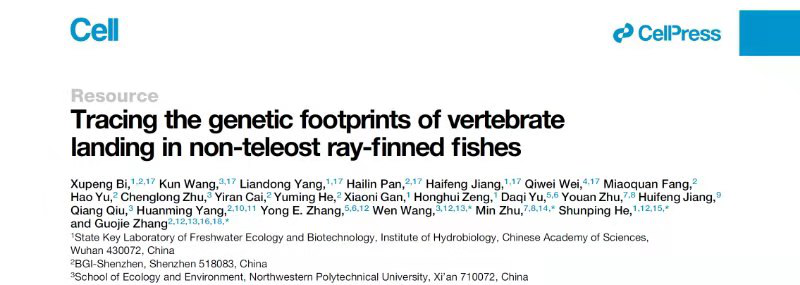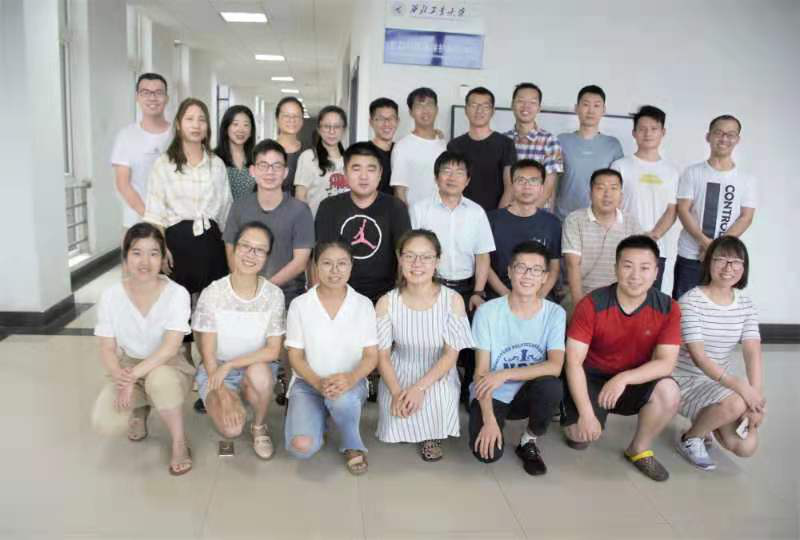Northwestern Polytechnical University, headquartered in Xi'an, Shaanxi province, Northwest China, published major scientific research findings in the internationally famous academic journal Cell online on Feb 5.


This is the first time that the university's research results have been published in Cell with it as the lead institution, indicating that the university has made great progress in basic research in the field of life sciences.
The findings were made by the Ecological Environment School of Northwestern Polytechnical University alongside domestic and foreign cooperators, and were published in Cell with the titles "African Lungfish Genome Sheds Light on the Vertebrate Water-to-Land Transition" and "Tracing the Genetic Footprints of Vertebrate Landing in Non-Teleost Ray-Finned Fishes".
The first author unit of the first paper is Northwestern Polytechnical University, with the first author being the university's Associate Professor Wang Kun, and with Professor Wang Wen and Professor Qiu Qiang of the university as the first and co-corresponding authors of this paper respectively. Zhu Chenglong, graduate student at the university, and Ren Yandong, a postdoctoral student at the university, are also co-first authors of the paper.
For the research work of the second paper, Associate Professor Wang Kun and Professor Wang Wen are co-first author (ranking second) and co-corresponding author respectively.
These two projects respectively analyzed the genomes of African lungfish, as well as the multi-fin fish, paddlefish, Bowfin fish and crocodile eels of the original radial fin fish, and then revealed the genetic foundations of the transformation from aquatic organisms to the terrestrial ancestors of quadrupeds from different perspectives, through the comparative analysis of genomics, evolutionary biology, ichthyology, paleontology, computational biology and molecular biology.
The first paper found that the evolution of vertebrates from aquatic to terrestrial experienced three important stages of genetic innovation, and the team successfully parsed the genome of the African lungfish, which has become the largest genome to be parsed so far.
The two genome analysis software programs developed for the research are becoming general software in the field of genomics research, which once again highlights the influence of China at the frontiers of genomics research.
The second paper is based on the genome of the primitive radial fin fish, and seeks to analyze the earlier evolutionary history of the tetrapod ancestors.
The two papers provide a new basis for understanding vertebrate genetic innovation from the aquatic to the terrestrial, and each reveals a new milestone in the origin and evolution of terrestrial vertebrates (tetrapods). The identified genetic variations provide a large number of new clues that may help with future research into the origin and function of organs and tissues such as lung, limbs, brain and heart.
The research team was led by Professor Wang Wen and Professor Qiu Qiang from the School of Ecological Environment, Northwestern Polytechnical University. The team is primarily engaged in the research of omics big data, biological adaptive evolution mechanisms and bionic applications, and has made a series of cutting-edge findings in recent years.

The research team is led by Professor Wang Wen and Professor Qiu Qiang from the School of Ecological Environment, Northwestern Polytechnical University.
In recent years, Northwestern Polytechnical University has been constantly undertaking research and actively cultivating new disciplines. The university's School of Ecological Environment, where the research team is located, was established and developed in this context.
The school combines the advantages of traditional disciplines, aimed at addressing the major needs of humanity's sustainable development and national ecological civilization construction. It also cultivates leading talents with a love for their country, pursues excellence, leads the way into the future, and is building a first-class environmental talent training hub, a first-class research institution and a strategic think tank.
Source: China Daily
http://subsites.chinadaily.com.cn/education/2021-02/05/c_587991.htm
